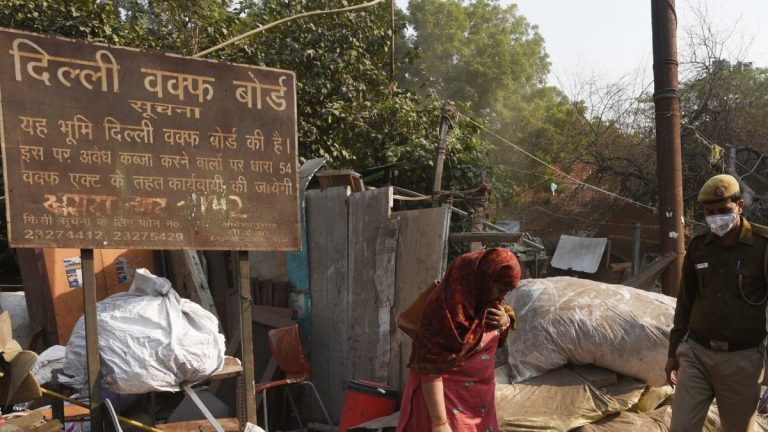Parliament's amendment to the Waqf Act gives the Waqf Board unfettered powers to appropriate land, including personal property, government land, temple land and monasteries, and government sources said the Center is ready to come up with a proposal A bill to amend the 1995 law was introduced in Parliament.
The Waqf Law Amendment Bill, 1995 will make it mandatory for waqf boards to register their properties with the district collector to ensure their actual valuation. There are 30 waqf committees across the country. Sources said the law will ensure more accountability and transparency and ensure mandatory inclusion of women in these institutions. They claimed the move came against the backdrop of demands from within the Muslim community.
Initially, waqfs owned about 52,000 properties across India. By 2009, there were 300,000 registered waqf properties covering 400,000 acres. As of now, there are over 8,72,292 registered properties spread over 8 lakh acres of land, which means the land in Waqf has doubled in just 13 years.
What is the Waqf Law?
The Muslim Religious Endowments Act of 1923 was proposed by the British, who first proposed the Madras Religious and Charitable Endowments Act of 1925, which caused large-scale protests by Muslims and Christians. It was then redrafted to exclude it, apply only to Hindus, and was renamed the Madras Hindu Religion and Endowments Act, 1927.
The Waqf Act was first passed by Parliament in 1954. In 2013, the act was further amended to give boards of directors of religious and communal organizations unlimited powers to plunder anyone’s property, which cannot even be challenged in any court.
In short, waqfs have unlimited power to claim property in the name of Muslim charities—powers that no other religious group in India has.
Section 3 of the Waqf Act 1995 provides that if the waqf “believes” that land belongs to Muslims, then it is the property of the waqf. The board does not have to provide any evidence as to why they believe the land is within their title.
Government sources revealed that even countries that follow Muslim law do not have waqfs and no religious institution has unlimited powers. Moreover, waqfs have not returned any land to Hindus who migrated from Pakistan during Partition.
Examples of abuse
• In Avinashi case, as per revenue records, 216 people of Devendrakula Vellalar community were given free Patta over 6.3 acres of land in Cheyvur Devendran Nagar in 1996. In a letter to Avinash, Thotipalayam sub-registrar offices and Tirupur district Joint I and Joint II sub-registrar offices, it was claimed that about 93 in certain survey data of Avinash and Tirupur The property is a Waqf property.
• Thiruchenthurai, a village on the banks of the Cauvery river in Tiruchirapalli district, also has a 1,500-year-old Sundareswarar temple. Villagers are now wondering how the religious foundation will claim ownership of the property.
• The Supreme Court recently ruled that dilapidated walls or platforms cannot be granted the status of religious places used for prayer or Namaaz purposes without any proof of dedication or user. The decision came as a relief to the Telangana government as the state subsequently leased land for setting up universities, towns and other prestigious institutions. In April 2012, the state government appealed to the Supreme Court after losing the case in the Andhra Pradesh High Court.
• The Rajasthan Muslim Waqf Board has been requesting financial assistance from the Rajasthan government to pay the salaries of its workers. This is in strange contrast to the fact that the Waqf Board owns over 18,000 properties across Rajasthan and generates revenue from over 7,000 properties.
• The Tamil Nadu Religious Endowment Board claims ownership of the 1,500-year-old Manendiyavalli Chandrashekhara Swami temple land. The temple has 369 acres of land in and around Tiruchenthurai village in Tamil Nadu.
• In 2021, the Waqf Board filed an application in the Gujarat High Court claiming ownership of two islands in Bet Dwarka in Devbhoomi Dwarka district. However, an angry court refused to hear the application.
